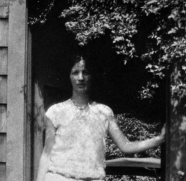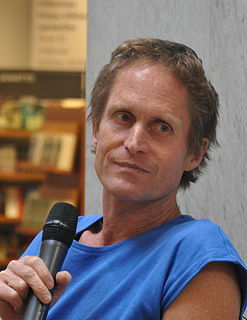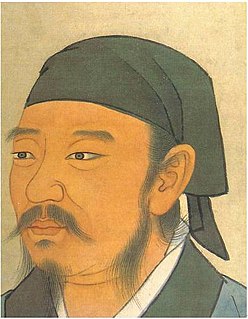A Quote by Alice Weaver Flaherty
How could poetry and literature have arisen from something as plebian as the cuneiform equivalent of grocery-store bar codes? I prefer the version in which Prometheus brought writing to man from the gods. But then I remind myself that...we should not be too fastidious about where great ideas come from. Ultimately, they all come from a wrinkled organ that at its healthiest has the color and consistency of toothpaste, and in the end only withers and dies.
Quote Topics
Related Quotes
An irreligious man is not one who denies the gods of the majority, but one who applies to the gods the opinions of the majority. For what most men say about the gods are not ideas derived from sensation, but false opinions, according to which the greatest evils come to the wicked, and the greatest blessings come to the good from the gods.
When my mother didn't come back I realized that any moment could be the last. Nothing in life should simply be a passage from one place to another. Each walk should be taken as if it is the only thing you have left. You can demand something like this of yourself as an unattainable ideal. After that, you have to remind yourself about it every time you're sloppy about something. For me that means 250 times a day.
It was the saying of a great man, that if we could trace our descents, we should find all slaves to come from princes, and all princes from slaves; and fortune has turned all things topsy-turvy in a long series of revolutions; beside, for a man to spend his life in pursuit of a title, that serves only when he dies to furnish out an epitaph, is below a wise man's business.
I've been trying to fit everything in, trying to get to the end before it's too late, but I see now how badly I've deceived myself. Words do not allow such things. The closer you come to the end, the more there is to say. The end is only imaginary, a destination you invent to keep yourself going, but a point comes when you realize you will never get there. You might have to stop, but that is only because you have run out of time. You stop, but that does not mean you have come to an end.
Sometimes I'll have an end in mind, but it's always false, always corny, just a dumb idea anyone could have, sitting on a barstool. An abstract thesis with no real life inside it. And then I start writing and the writing itself confounds me, taking away the comfort of knowing the end in advance. How is that even possible? Doesn't the conclusion come at the end? How can you begin with one - that seems odd, right?
Everyone strives to attain the Law,' answers the man, 'how does it come about, then, that in all these years no one has come seeking admittance but me?' The doorkeeper perceives that the man is nearing his end and his hearing is failing, so he bellows in his ear: 'No one but you could gain admittance through this door, since this door was intended for you. I am now going to shut it.





































